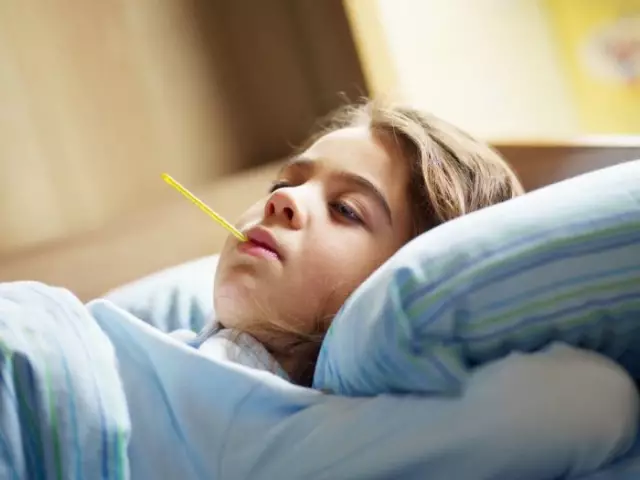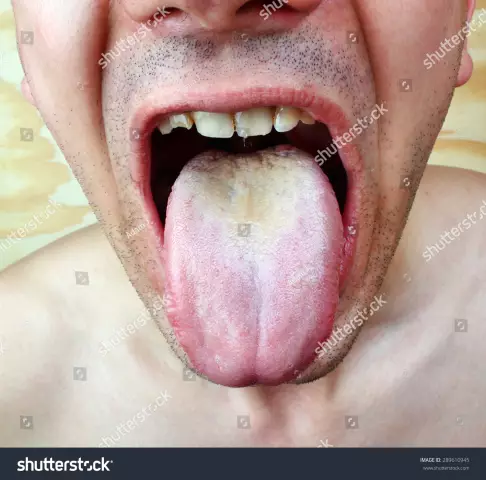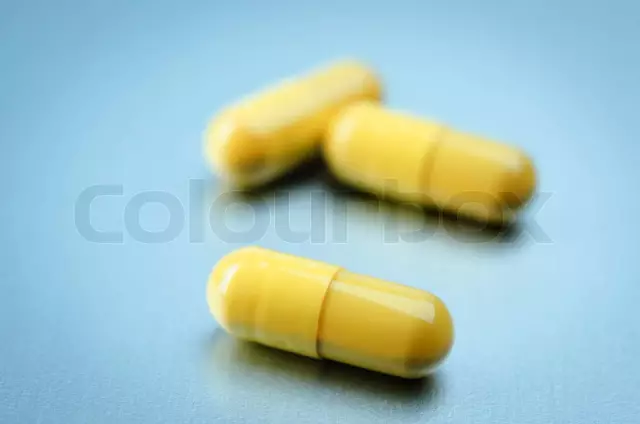- Author Rachel Wainwright wainwright@abchealthonline.com.
- Public 2023-12-15 07:39.
- Last modified 2025-11-02 20:14.
Yellow fever
General characteristics of the disease

Yellow fever is an acute hemorrhagic (hemorrhagic) disease with a viral etiology.
Sources of infection with this virus are wild animals, usually opossums and monkeys, as well as people who are sick with it. Mosquitoes carry the yellow fever pathogen, while the virus is not transmitted directly from person to person. The disease is endemic in Latin America and tropical Africa.
It is estimated that annually this virus infects about 200 thousand people in the world, for 30 thousand of whom the outcome of the disease is fatal. Over the past twenty years, there has been an upward trend in yellow fever infections due to declining immunity, urbanization, deforestation, population migration and climate change.
The most effective prevention of the disease today is the yellow fever vaccine.
Disease symptoms
The yellow fever virus in the incubation period is about 3-6 days, after which the infection begins to manifest itself.
The disease can have one or two stages. The first stage is characterized by fever, chills, lower back pain, muscle pain, headache, loss of appetite, vomiting, or nausea.
For most patients, the disease is limited only to this stage - after 3-4 days the symptoms of yellow fever disappear. However, in 15% of cases, a day after remission, patients expect the second stage, which is more toxic than the previous one. At this stage, the body temperature rises again, the body systems are damaged, jaundice begins to develop rapidly, the patient suffers from vomiting and pain in the abdomen.
The characteristic symptoms of yellow fever at this stage are bleeding from the nose, mouth, eyes. Bleeding from the stomach is possible, which manifests itself in the presence of blood in the feces and vomit. In addition, at this stage of the disease, renal function deteriorates. About 50% of patients faced with the toxic stage of the disease die within 10-14 days, and the rest in most cases recover without significant organ damage. Only sometimes complications of the disease are possible in the form of pneumonia, myocarditis, gangrene of the extremities or soft tissues. It is also possible to develop sepsis due to the addition of secondary bacterial flora.
Symptoms of yellow fever are similar to those of severe malaria, leptospirosis, viral hepatitis, other hemorrhagic fevers, and poisoning, so it is very difficult to diagnose this disease. Only highly qualified health workers can detect the yellow fever virus through laboratory tests of blood samples or posthumous liver tissue.
Treatment for yellow fever
To date, specific drugs for the treatment of yellow fever have not been developed, so only symptomatic therapy of the disease is possible.
Patients are advised to stay in bed and follow a sparing diet rich in high-calorie foods. Treatment of yellow fever involves massive vitamin therapy, the use of non-steroidal anti-inflammatory drugs (except for acetylsalicylic acid), infusion of plasma substitutes and adsorbing drugs. If bleeding is severe, a blood transfusion may be prescribed.
Prevention of the disease

Yellow fever vaccination is the most important and effective way to prevent this disease. Vaccination is necessary not only for those living in endemic areas, but also for tourists traveling to those regions.
A yellow fever vaccination certificate is required for all travelers to Africa or Latin America. If vaccination is contraindicated for medical reasons for the traveler, the exemption must be certified by the competent authorities.
The vaccine against yellow fever, containing a weakened virus, allows 95% of the vaccinated to develop reliable immunity to the disease within a week, which lasts for 30-35 years, and sometimes for life. Despite the fact that the vaccine is recognized as one of the most highly effective and safe in the history of vaccinology, it has a yellow fever vaccine and contraindications. This vaccine is not intended for:
- children under 9 months of age in case of regular immunization;
- children under 6 months of age in case of an epidemic;
- pregnant women - the exception is outbreaks of the disease;
- persons suffering from severe allergy to egg white;
- persons with severe immunodeficiency caused by symptomatic HIV / AIDS or other causes, or suffering from diseases of the thymus gland.
An infected person, even with a mild form of yellow fever, is a danger to others, therefore, in order to prevent further spread of the virus, the patient is provided with maximum protection from mosquito bites. Isolation of the patient is advisable only in the first 4 days, since later he is no longer a source of infection for mosquitoes.
Mosquito control is a non-specific prevention method for yellow fever, which includes killing the breeding grounds of these insects, spraying insecticides to kill adults, and adding these chemicals to water sources where mosquitoes begin to develop.
YouTube video related to the article:
The information is generalized and provided for informational purposes only. At the first sign of illness, see your doctor. Self-medication is hazardous to health!






